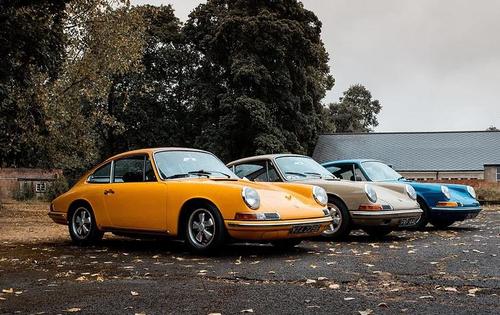Porsche Isn’t Giving Up On The Combustion Engine
Tyler Durden
Fri, 12/11/2020 – 05:00
Submitted by Market Crumbs,
Porsche, which many would argue makes one of the finest cars in the world, has been a leader in innovation since its founding nearly 100 years ago but remains true to it origins. A perfect example is remarks by Porsche CEO Oliver Blume last month saying the automaker’s flagship vehicle—the 911, won’t be going electric anytime soon, if ever.
“Let me be clear, our icon, the 911, will have a combustion engine for a long time to come,” Blume said.
“The 911 is a concept of the car that is prepared for the combustion engine. It’s not useful to combine it with pure electric mobility. We believe in purpose-designed cars for electric mobility.”
Despite remaining devoted to the combustion engine, Porsche has made strides to prepare for a future where vehicles don’t run on gasoline. The company pulled out of the World Endurance Championship’s top-flight at the end of 2017 season, despite being one of the most successful manufacturers in the history of the sport, so it could focus on Formula E, which is an all-electric single seater championship.
Porsche also offers hybrid versions of its popular Panamera sedan and Cayenne SUV. Earlier this year the company began delivery of the Taycan, which is the first all-electric car designed and produced by Porsche.
Back in September, Porsche said it wants to “significantly and independently drive forward the development of synthetic fuels, known as eFuels.” Porsche director of research and development Michael Steiner said the company was looking for partners to prove the process works and can be industrialized.
“This technology is particularly important because the combustion engine will continue to dominate the automotive world for many years to come,” Steiner said.
Porsche announced last week it has partnered with Siemens Energy, energy firm AME, Chilean petroleum company ENAP and energy company Enel to advance the development of eFuels. The companies are working to develop the “Haru Oni” pilot project in Chile that will result in the world’s first integrated, commercial, industrial-scale plant for making eFuels.
The first phase will see the project produce 130,000 liters of eFuels as early as 2022 before capacity increases to 55 million liters per year by 2024 and 550 million liters by 2026. Porsche will be the primary customer for the eFuel and will use it in the Porsche motorsport fleet, at Porsche Experience Centers and eventually in series production sports cars. Porsche is making a 20 million euro initial investment in the project.
“eFuels can be used in combustion engines and plug-in hybrids, and can make use of the existing network of filling stations,” Porsche CEO Oliver Blume said. “By using them, we can make a further contribution toward protecting the climate.”
Calling eFuels the “alternative fuels of the future,” Blume made it clear Porsche has the experience and knowledge to find a solution to help the climate while still enjoying the thrill of driving a Porsche.
“As a maker of high-performance, efficient engines, we have broad technical expertise,” Blume said. “We know exactly what fuel characteristics our engines need in order to operate with minimal impact on the climate.”
While Porsche believes electrified models will make up 50% of sales by 2025, the automaker’s ambitions with eFuels show the company doesn’t intend on completely writing off the combustion engine.
For a brand that has built its reputation on speed, its own R&D chief said it best when he said “With electricity alone, you can’t move forward fast enough.”
via ZeroHedge News https://ift.tt/2LoG4rX Tyler Durden
